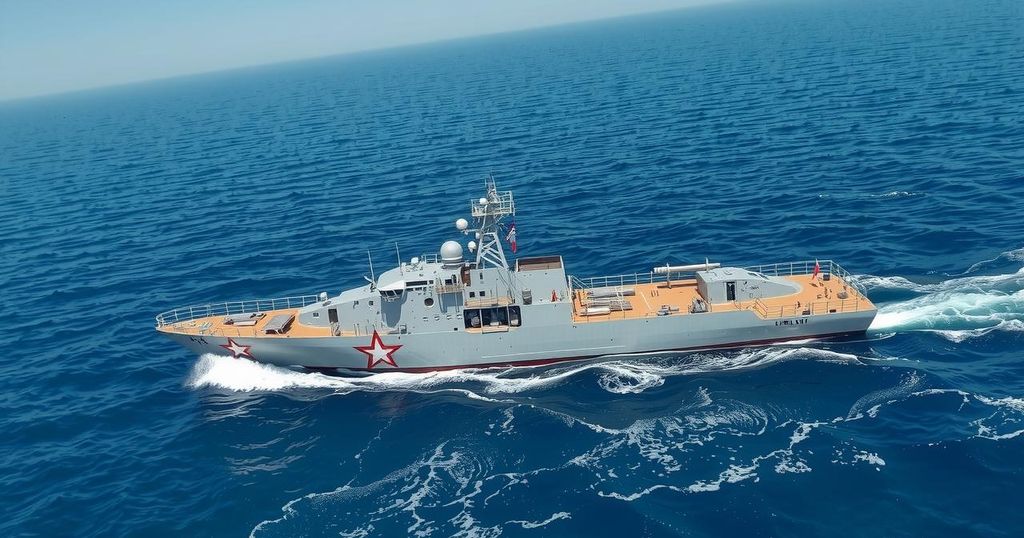In August 1980, a Libyan warship stopped a Maltese oil rig from drilling on the Medina Bank, escalating a long-standing territorial dispute. Malta sought UN protection, citing the illegality of Libya’s military threat. The incident emphasized the complexities of maintaining neutrality in international relations, leading to Malta’s eventual need to reassess its defense strategies in light of historical aggressions. The case was eventually taken to the International Court of Justice in 1985.
In August 1980, a Libyan warship intervened to stop a Maltese-contracted oil rig from drilling on the Medina Bank, marking a significant incident in the ongoing dispute over the delineation of the continental shelf between Malta and Libya. This event escalated tensions that had been building since 1972. The warship’s presence forced the workers aboard the rig to cease operations and vacate the site under the threat of military action.
The incident unfolded on August 20, 1980, as oil workers aboard the Italian rig, contracted by Texaco, were suddenly ordered to halt their drilling activities. The Libyan government utilized military threats to assert its claims over the contested waters, which Malta had begun exploring following a 1974 concession for oil drilling.
Subsequent to this confrontation, Malta’s Permanent Representative to the UN, Victor J. Gauci, sought protection from the Security Council, emphasizing that no nation, particularly a small, unarmed one like Malta, should have its legal endeavors obstructed. The Libyan vessel remained stationed at the rig for several days, compelling Malta to abandon its oil exploration efforts on the Medina Bank.
Malta’s prime minister at the time, Dom Mintoff, characterized the relationship with Libya as one of “brotherly ties,” making the incident more distressing. The warship’s interference marked a climax in the bilateral disputes around continental shelf rights, which ultimately reached resolution through the International Court of Justice in 1985.
Following the election of a new Labour government in 1971, Malta attempted to reduce its economic reliance on the British military base, scheduled to close in 1979. One of its primary objectives became oil exploration, necessitating clear demarcation of marine boundaries with Libya. However, Libya contested Malta’s proposed equidistance demarcation, arguing instead for geological considerations to guide the boundaries.
Libya expressed objections to Malta’s drilling operations, and despite initial agreements to refer the dispute to the International Court of Justice, Libya delayed ratification of the agreement, frustrating Malta’s government. Multiple correspondences from Mintoff conveyed Malta’s urgency in resolving the issue, underscoring the detrimental impact of the delay on Malta’s future economic prospects as a neutral state
Efforts continued as Mintoff sought diplomatic solutions to the territorial disagreements, insisting on Malta’s need to commence oil drilling which would secure the country’s independence from military reliance. The ongoing standoff culminated in Libya’s warning against drilling, which Malta disregarded, proceeding with its plans in early 1980.
In response, Libya formally protested, asserting violations of its sovereignty. The resulting tensions ultimately led to the military intervention halting Malta’s oil exploration, reducing Malta’s continental shelf limit following the ICJ’s eventual ruling in 1985, which favored Libya due to its larger coastline.
Despite the passage of time, the oil rig incident serves as a stark reminder of how neutrality can be undermined by aggressive actions from neighbor states. This historical context remains relevant, as discussions around defense and military capability reinvigorate in light of recent global conflicts. Malta’s constitution prohibits military alliances, yet enhancing defense capabilities can serve to deter potential threats against its interests, particularly given its strategic subsea infrastructure. The risk of aggression and the need for robust defense align with broader EU security initiatives amid shifting geopolitical dynamics.
The incident involving the Libyan warship and the Maltese oil rig in August 1980 illustrates the complexities surrounding neutrality and territorial disputes. Despite Malta’s aspirations for peaceful relations, military force was employed against it, obstructing its oil exploration endeavors. This event not only highlighted the fragile nature of international relations but also serves as a contemporary reminder for Malta to bolster its defense strategy amid evolving global security challenges. As such, Malta must consider enhancing defense capabilities while maintaining its commitment to neutrality, ensuring readiness against potential aggressions.
Original Source: www.maltatoday.com.mt






